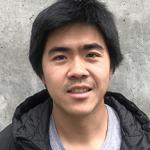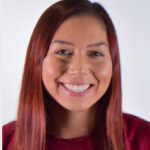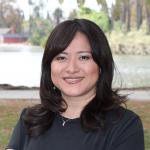Opportunities from SCEC’s Experiential Learning and Career Advancement

A year into the pandemic, we continue to evaluate the extent of disruption to career growth due to suspended experiential learning and career advancement programs. Students and early career researchers (ECRs) were significantly impacted by the decreased number of opportunities and support available to them. For many, the gap in experiential learning opportunities stunted their academic and professional growth. SCEC’s Office of Experiential Learning and Career Advancement (ELCA) continues to offer resources and opportunities for students and ECRs to support their transition during this disruptive period.
How can SCEC support your experiential learning and career advancement?
Apply for a SCEC Internship
 |
"One of the most important things I got out of the SOURCES program was the exposure to other scholars in the earthquake science community and opportunity to connect with them in low-pressure settings" |
Internships are a foundational component of experiential learning that help students define their research interests and priorities. Last summer, we launched the Supported Opportunities for Undergraduates and Researchers to Collaborate on Earthquake Science (SOURCES) Program. SOURCES provides remotely-mentored, year-round, paid research experiences for undergraduates. The remote nature of the program allows students the opportunity to participate regardless of geographic location or availability of local researchers. Interns gain valuable research experience, as well as career development, cohort building, science communication, and technical training. As part of their professional development training, SOURCES interns learn about creating healthy mentoring relationships and how to identify advisors and mentors who can best support their academic and career development.
 |
"With the mentorship of the SOURCES program, I got accepted into a PhD straight from my undergraduate degree." |
SCEC has increased the number of internships available. We encourage undergraduate students to apply for the 2021 SOURCES Internship!
SCEC researchers interested in mentoring a SOURCES student should complete the Mentor Survey.
Optimize Your Research Mentoring Relationships
Whether you are a graduate student, postdoc, or junior faculty, developing mentoring skills is essential to successfully navigate the research environment. Effective research mentoring relationships are also critical to developing the next generation of diverse and competent researchers. Strong mentorship is linked to enhanced science identity, a sense of belonging, and efficacy, as well as enhanced recruitment and retention of underrepresented minorities (Hathaway et al., 2002; Nagda et al., 1998, Feldman et al., 2010).
SCEC’s Mentor and Mentee workshops provide training and resources for participants who wish to improve their own skills as mentors/mentees. Mentoring workshops provide strategies for navigating relationships in which goals and identities (cultural or demographic differences, career aspirations) may differ between mentor and mentee. ECRs who are in the process of establishing themselves benefit from learning about best practices for becoming a mentor and advisor. Senior researchers benefit from mentor training as a refresher or to explore new skills or techniques in supporting student success. Improving mentoring relationships is critical to individual success and can lead to positive cultural change and inclusivity.
SCEC offers two mentoring workshops:
- Entering Mentoring workshop – designed for junior and senior researchers interested in enhancing their mentoring skills and relationships. The next SCEC Entering Mentoring workshop will be offered virtually in July.
- Entering Research workshop – designed to empower students to get the most out of their research experiences by providing guidance, structure, and a place to reflect as they navigate the ups and downs of doing research. This next SCEC Entering Research workshop will be offered in September.
Anyone interested in mentoring training can contact gnoriega@usc.edu with any questions. Notifications will be sent to the SCEC community when registration for mentoring workshops is open.
Apply for Research Travel Awards
Scientific conferences provide opportunities for students and ECRs to build their professional profiles by presenting their own research, networking with active scholars at other institutions, and broadening their research interests. Those seeking opportunities to communicate research results and to have exposure to a broader scientific community can apply for Research Travel awards to support their efforts.
Travel Awards help students and ECRs attend conferences that might otherwise be out of their financial reach. SCEC community members seeking Research Travel support, which can include conference registration and abstract fees, can learn about requirements and access the application here.
Participate in Career Development Events
SCEC hosts and coordinates several events to provide opportunities for students and ECRs to learn about potential career paths, speak to mentors in their areas of interest, and gain knowledge about competencies needed to pursue their career interests. Connecting students to researchers, mentors, and advocates also provide opportunities for growth and collaboration. SCEC career development events ensure participation from mentors from industry, nonprofit, government, and academia who can provide guidance during career exploration.
SCEC’s ELCA programs continue to provide research opportunities, networking, and resources to the SCEC community as a key strategy in effective student and ECR development, encouraging and sustaining careers in STEM fields, and supporting a diverse and inclusive geoscience pipeline. Given the pandemic, we are making an even deeper commitment to these efforts.
For additional information about SCEC’s Office of Experiential Learning and Career Advancement visit scec.org/elca. You can reach ELCA’s Manager, Dr. Gabriela Noriega, at gnoriega@usc.edu with any questions or invitations for collaboration
About the Author
 |
Gabriela Noriega is the Manager of Experiential Learning and Career Advancement at SCEC, where she leads education and career development initiatives to provide early-career scientists and students with resources and mentoring across key career transitions. Dr. Noriega also supports the coordination of public-private partnerships that work together to improve earthquake preparedness, mitigation, and resilience. |
References
- Hathaway SR, Nagda AB, Gregerman RS (2002). The relationship of undergraduate research participation to graduate and professional education pursuit: An empirical study. Journal of College Student Development, 43(5):614–631.
- Mitchell D. Feldman, Patricia A. Arean, Sally J. Marshall, Mark Lovett & Patricia O'Sullivan (2010) Does mentoring matter: results from a survey of faculty mentees at a large health sciences university, Medical Education Online, 15:1, DOI: 10.3402/meo.v15i0.5063
- Nagda, B.A., Gregerman, S.R., Jonides, J., von Hippel, W., & Lerner, J.S. (1998). Undergraduate Student-Faculty Research Partnerships Affect Studen Retention. The Review of Higher Education 22(1), 55-72. doi:10.1353/rhe.1998.0016.



